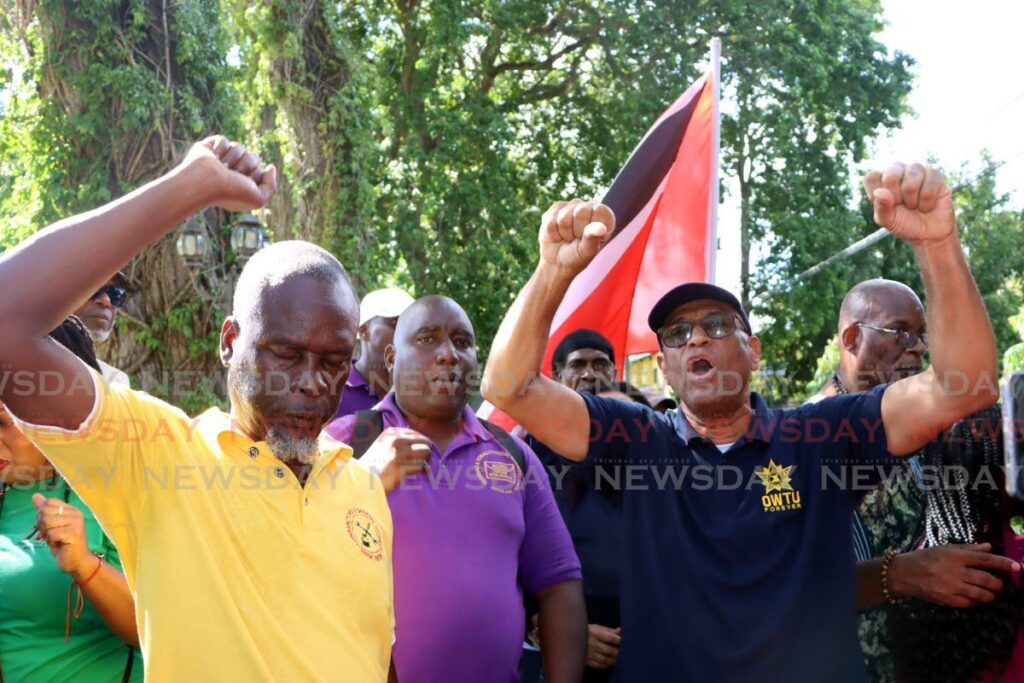What does democracy mean in Trinidad and Tobago?

THE Salaries Review Commission (SRC) does not have the authority to mandate any prime minister to make as important a decision as one which would have and has affected the entire country.
Our Prime Minister, however, made such a decision and very controversially of his own free will.
Dr Rowley made the ultimate decision to endorse the recommendation – please note, it was a recommendation, not a decision of the SRC – in reference to the massive increases in salaries of what my grandmother used to call "the high and mighty."
The SRC cannot trump Parliament. The SRC is a subordinate body, not a primary one in the governance structure of Trinidad and Tobago. That decision must therefore be made by Parliament.
But by Rowley’s offhand announcement that he was just accepting the SRC’s calculations, he has, by implication, given guidance to salary-setters in other major business and government institutions.
Caribbean Airlines pilots, port workers, WASA, UWI teaching staff and other citizens’ groups down the line are following suit.
So what exactly does democracy mean in TT? Is it a reality that is being deeply questioned by the man in the street? Evidenced when virtually every day people are seen marching in the streets in large groups to express strongly felt opinions against the decision of one man accepting a huge increase in emoluments for himself and the people approved by him, on the recommendation of a department of government that ultimately reports to him? Did it dare recommend otherwise? However inconsistent that acceptance was with what he told citizens mere months ago to "bind their bellies" for the next couple of years? Is that the power of the people?
Doesn’t democracy mean decisions made at a parliamentary level? Decisions taken after genuine debate by the people, of the people and for the people?
Or have there been different rules for people of different statuses legislated while the press was not looking? Could be, I suppose. I honestly do not know. Maybe Parliament passed some new laws keeping the elderly, the disabled, the poverty-stricken and the weak in their place, encouraging others to accept the voice of power or else they will remove from them what little they have and give it to others who have more – and want more? And the press didn’t bother to tell us?
What is in a word? As Shakespeare said: "A rose by any other name would smell as sweet."
The countries that used to call themselves communist without changing their systems of governance are mostly now called democratic socialist soviet republics.
They do get a chance to vote for those who will represent them in their forms of Parliament. They will have to be approved, of course, by a selection committee.
This is much like our own system, where every political party looking at the 2025 election now has a selection process to decide which candidate should stand in which constituency to represent the party. The rules governing how those committees operate, will differ, of course.
"Different strokes for different folks."
The democratic process is so important in TT that most NGOs also use it to decide on who will represent them where decision-making affecting the collective must be made.
We even teach children in primary school the way to vote is by majority. That is one of the ways they learn arithmetic.
Trade union use a stipulated voting procedure enshrined in law – the Trade Unions Act (1933) – which was updated in 2015. It has a legislated system to ensure workers get the union of their choice as their recognised bargaining unit.
It is a privilege denied to employers, who cannot access freedom of choice in which union they must bargain with, or freedom of association in relation to which trade union they must bargain with. That is a decision that can only be made by a majority of the employees in their employ.
It follows a legislated process that employers trust is monitored by the Ministry of Labour and observed to the letter, but which they do not participate in.
The recent claim by the new chairman of the SRC that his commission used the Hay System in recommending allocations for the salaries of public servants on the upper levels, thus using a form of calculation for political appointees which was developed for executives in money-generating business organisations, seems strange to other professionals.
Did the commissioners not remember to take into account, as businesses must do, what level of profitability they were responsible for?
Did allocating those huge increases to the President and the Prime Minister and other political appointees take into account the actual increases or decreases in the national budget?
Other non-political appointees’ bonus payments are allocated to reflect the monetary results of their efforts. Their efforts reflect the benefit the individual brings to the company.
That is what “bonus” means – the amounts of both salary increases and payments over and above it are to reflect past success in meeting targets and to encourage future efforts.

Comments
"What does democracy mean in Trinidad and Tobago?"